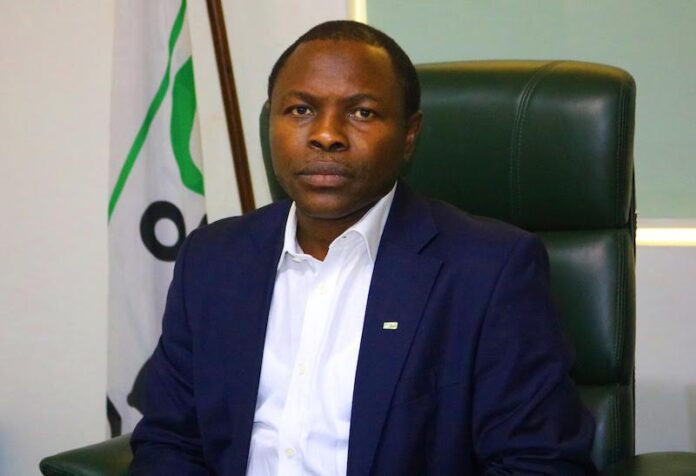In this interview, the Chairman, MOMASS Electricity Meters Manufacturing Company (MEMMCOL), Dr Kola Balogun, speaks on sundry issues impacting the electricity supply industry. He maintains that fixing the prices of meters is negatively impacting the viability of manufacturing firms in the sector. Emmanuel Addeh brings the excerpts.
Would you say the banking sector has contributed to the power sector in any way in Nigeria?
It is a known fact that bank loans are run on double-digit interest rates which make it difficult for manufacturers to really break-even when they access bank loans. Aside this, the distribution end of the power sector value chain is highly regulated and off-take as well as prices are determined by the government. The major scheme put in place by the regulatory agency which is the MAP scheme is a retail model and it is not suitable for manufacturing, thereby affecting energy meter manufacturing growth.
On the energy meters price fixing, this is also not appropriate, considering the increasing exchange rate and the fact that most of the meter components are sourced from overseas. This is making the business not to be viable anymore. This is also not allowing for competitiveness. Equally, control of meter off-take is affecting the commercial of energy meters.
Sadly, Nigerians are craving energy meters but because of the system in place, it is making it difficult for people to have access to energy meters. So, with all these bottlenecks, accessing bank loans is not really useful in the sector because you can not obtain bank facilities to produce energy meters without off-take.
Have you had difficulties accessing funds, particularly foreign exchange-dominated funds for importing raw materials?
Unfortunately, we have been buying forex from the parallel market for the last 12 years because successive governments in the country have not been concerned about the need to prioritise the provision of forex through the official window for the manufacturers.
They seem to have forgotten that the real sector is key to the development of the economy through job creation. We buy forex from the black market to procure raw materials from abroad and after the production, we are compelled to sell at a fixed price. The meter prices were reviewed in October 2021 before the recent review that was done in September 2023.
What would you say are the achievements of MEMMCOL within the last 10 years post-privatisation?
MEMMCOL is the leading manufacturer in the downstream of the power sector. We are duly recognised and certified as an Original Equipment Manufacturer (OEM) in the power sector where we have demonstrated passion, commitment, patriotism, and professionalism through innovations that are at par with best-known global practices.
There have been notable inventions like the prepaid energy meters, vending/billing management applications and support services, meter boxes of all kinds, single and three phase Din Rail smart electricity meters, dual tariff electricity meters, etc.
Under CAPMI, we deployed 250,000 meters, while under MAP it was 120,000 and then we have deployed 160,000 meters under the National Mass Metering Programme.
How has these impacted job creation?
MOMMAS is a pacesetter in the downstream of the power sector. We are responsible for some of the notable inventions in the sector, ranging from the invention of a software billing application system for the Distribution Companies (Discos) and the invention of a management application system.
How are the various taxes and levies affecting the manufacturing or importation of electricity meters?
Well, the Value Added Tax (VAT) and other tax elements are huge burdens on manufacturers, especially in the power sector because the cost of doing business in the country is extremely high because of multiple taxations from the state, local, and federal governments.
This is coupled with the high cost of energy production which is affecting business profitability. This is why compliance has not been effective. The government needs to look into all these issues, create an enabling business environment identify genuine manufacturers, and put policies in place for growth support for the manufacturers.
Taxes, port charges, import charges, and multiple layers of charges are a burden that negatively affect manufacturing businesses and trading in the metering value chain.
So, what changes would you like to see in the tax system?
Governments need to, first of all, streamline the tax structure in such a way that it will be minimal, then look into the infrastructural challenges across the country that are affecting business and address the challenge.
It needs to prioritise forex availability for manufacturers at the official window, put policies in place to incentivise local manufacturers, create zero per cent interest loans for manufacturers to enable production to thrive and make import Duty and Port Charges zero for the importation of raw materials and pieces of machinery to encourage production.
This will to a great extent bring about local production, boost the economy through job creation, increase exports, and strengthen our currency.
Also, the government needs to take very seriously the distribution end of the value chain in the power sector because it is responsible for revenue generation which guarantees cost recovery and this can only be achieved through metering and power infrastructure.
So, the government needs to support local meter manufacturers by addressing some of the challenges affecting the growth of the sector.
Another problem with the sector is the different types of energy meters in the country which is seriously affecting manufacturing. The federal government has to enforce the adoption of a single specification of electricity meter in the country.
This, if done will give direction to production and it will give effect to backward integration because by so doing, the different players in the sector can then choose the convenient area of specialisation on any of the components and this will make production complimentary.
In the long run, some of the components that are produced in the sector would as well be useful in other sectors of the economy and a lot of industries and jobs will be created.
There is a need for the government to liberalise metering supply in the country by removing the statutory control of the government on meter supply and meter prices with a view to opening up the sector for easier accessibility to electricity meters by Nigerians and to give effect to the forces of demand and supply to determine the prices of meters.
This will enable manufacturers to have the freedom to sell their products at competitive prices, it will create a lot of jobs for Nigerians through dealership and retailing of electricity meters; it will guarantee cost recovery in the sector as more Nigerians will have energy meters and distributions companies too will have improved revenue to sustain the entire value chain in the power sector.
It is believed that the unreliable power supply in the country is also affecting meter manufacturers in the country.
Since we commissioned our factory 13 years ago in Ogun state, we have been running generators because power around the Lagos/Ibadan expressway is not too good for sensitive industrial activities like our factory.
This is because, in our production processes, there must not be fluctuation or power outage during the production processes. Today, the cost of diesel per litre is now N1,300 and we use 33,000 litres in a month. The implication of this is that the bulk of our revenues goes into energy supply leaving us with nothing in terms of profit.
What in your opinion should the government do differently to improve grid stability and reliability in Nigeria?
Since the old NEPA was unbundled and privatised, it has not really lived up to expectations as the power situation in the country has not really improved. As a stakeholder in the sector with over 40 years of experience and having been responsible for some of the notable inventions in the sector, I am bold to say that that sector needs the government’s urgent intervention.
This should be done by way of setting up a committee comprising of eminent and experienced experts who are knowledgeable about the sector to appraise and review the performances of the generating companies, transmission companies, and the distribution companies.
This is with a view to having a proper overview of the sector and reviewing the existing policy framework in order to reposition the sector for better performance.
According to the federal government report, the energy meter need in the country as at 2020 was put at 10 million and this was what informed the first notable intervention in the sector by the government.
The federal government tagged it the National Metering Programme where the Central Bank of Nigeria (CBN) is mandated to provide fund for energy meter off-take from the established and recognised local energy meter manufacturer in the country.
This is one of the landmark achievements of former President Muhammadu Buhari, and this must be sustained. Phase zero of the scheme has been concluded since 2021 with 1 million energy meters freely given to Nigerians.
Phase one of the scheme is stalled because of the unrealistic fixed contract prices for a contract that is expected to be completed in one year considering the increasing inflation, unstable foreign exchange, and foreign exchange accessibility to the manufacturers to be able to procure raw materials from oversea and technical specification review.
The challenges recorded in the intervention have made it necessary for all the fundamental issues militating against development downstream of the sector to be addressed.
Firstly, it is sad that it is only in the power sector that manufacturers are compelled to sell their products at regulated prices. We have been advocating for the liberalisation of the sector by removing the statutory control on meter supply and meter prices with a view to opening up the sector for easier accessibility to electricity meters by Nigerians and to give effect to the forces of demand and supply to determine the prices of meters.
This will enable manufacturers to have the freedom to sell their products at competitive prices and it will create a lot of jobs for Nigerians through dealerships and retailing of electricity meters.























